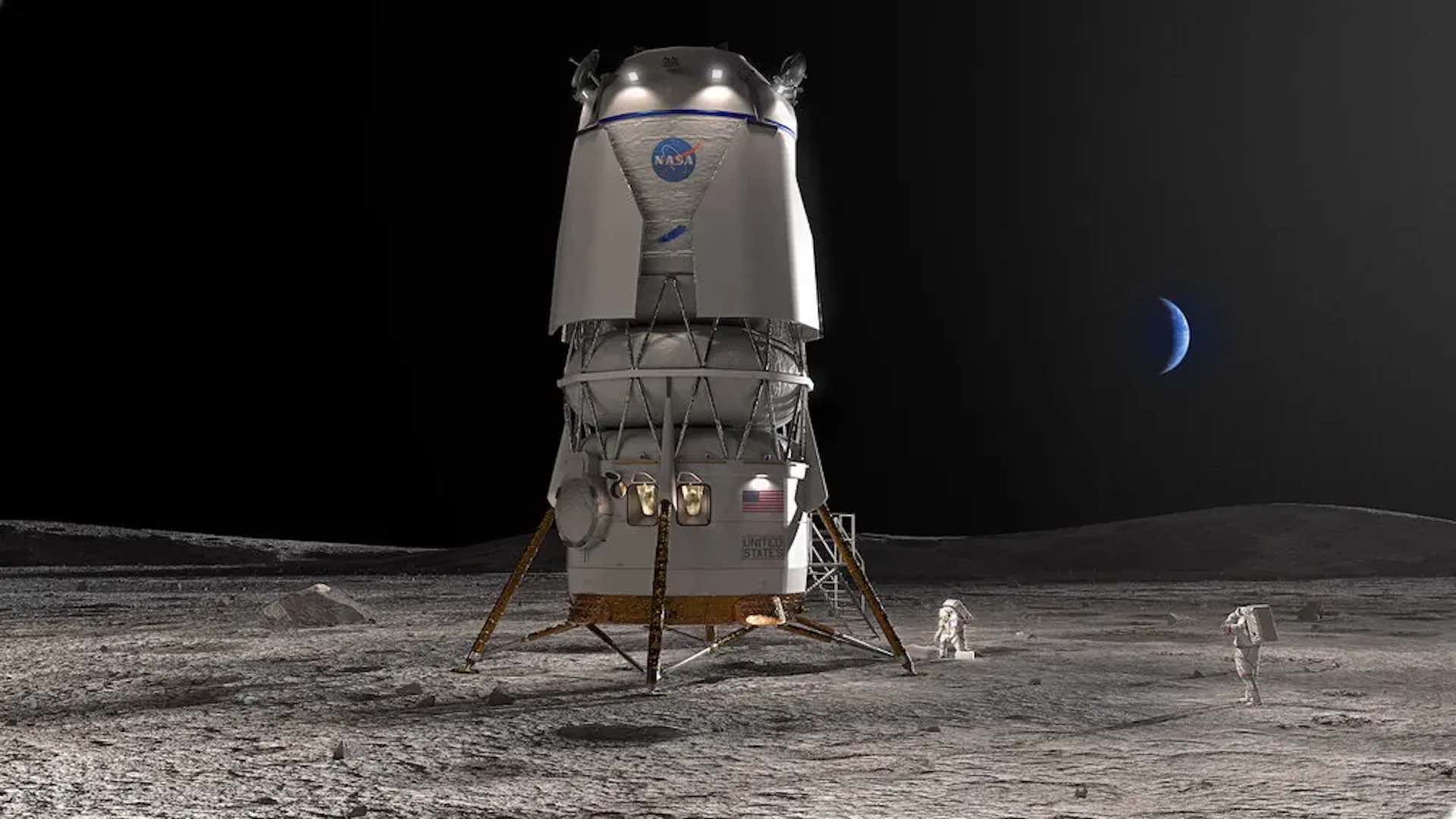Blue Origin, the space exploration company helmed by Amazon founder Jeff Bezos, has earned a prestigious $3.4 billion NASA contract for a mission to the Moon. This award, a momentous milestone, realizes Bezos’s vision of contributing to human space exploration. As part of NASA’s Artemis Program, Blue Origin’s commitment is to develop a “human landing system” (HLS) capable of ferrying astronauts to the lunar surface, which is a significant step towards Bezos’s aspiration of establishing a permanent human settlement on the Moon.

As a key contributor to NASA’s Sustaining Lunar Development (SLD) project, Blue Origin’s HLS will be instrumental for the Artemis V mission, slated to occur in the early 2030s. The Artemis Program has an ambitious agenda of orchestrating multiple crewed Moon landings. This contract is a vital progression in NASA’s drive to reintroduce humans to lunar exploration and occupation.
Upon receiving the award, Bezos expressed his elation on Twitter, saying, “Honored to be on this journey with NASA to land astronauts on the Moon — this time to stay.” NASA Administrator Bill Nelson confirmed that Blue Origin would act as NASA’s second service provider responsible for transporting Artemis astronauts to the lunar surface.
The mission logistics involve utilizing NASA’s Space Launch System (SLS) rocket to carry four astronauts to lunar orbit in the Orion spacecraft. From there, two astronauts will switch to Blue Origin’s HLS for a weeklong expedition to the Moon’s South Pole. The Lunar Gateway, a space station in lunar orbit, will act as a rendezvous and docking point for the Orion spacecraft, facilitating the astronauts’ vehicle transition and bolstering their lunar exploration and research activities.
Even as Blue Origin takes the lead on this venture, alongside partners Lockheed Martin, Draper, Boeing, Astrobotic, and Honeybee Robotics, it continues to face stiff competition from SpaceX. The space company, headed by Elon Musk, has already secured two contracts from NASA, valued at a total of $4.2 billion for similar Moon missions. SpaceX’s first contract, worth $2.89 billion, was awarded in 2021 to develop the Starship rocket for lunar landings, followed by a second contract in 2022, worth $1.15 billion, for an additional Starship lander.
NASA’s decision to engage multiple companies and encourage varying lunar lander designs aims to ensure robust, frequent lunar missions. Lisa Watson-Morgan, manager at NASA’s Marshall Space Flight Center, underscored the importance of adopting diverse approaches in achieving NASA’s mission objectives.
